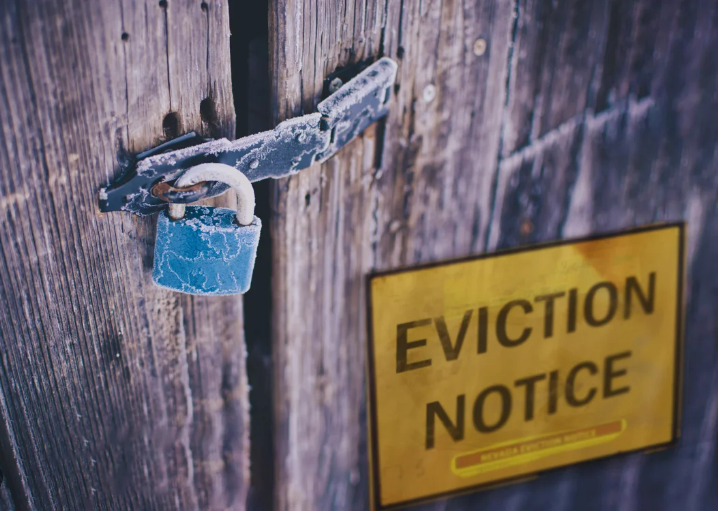Should Retirees Use Their Homes to Pay Bills?


Retirement planning requires years of saving, but what if your nest egg falls short? Your home could be a valuable asset, providing a way to cover medical expenses, urgent repairs, or other costs without draining your cash reserves.
Home equity has never been more significant, especially as property values have soared. The average homeowner has accumulated substantial home equity, with Baby Boomers, currently aged 60-78, holding a remarkable $18.6 trillion in real estate wealth.
“Home equity represents wealth and savings for many Americans,” says Shoji Ueki, head of marketing and analytics at Point, a home equity investment firm. “It offers a way for seniors, in particular, to manage life’s expenses and enhance their quality of life. It can be an essential financial tool.”
However, before considering your home as a financial resource, it’s crucial to evaluate the potential benefits and risks. Let’s explore whether retirees should leverage their homes for expenses and the best strategies for doing so.
Homeownership and retirement statistics
Here are some key statistics regarding homeownership and retirement:
- Nearly half of working-age households face the risk of not being able to sustain their standard of living in retirement, according to Boston College’s Center for Retirement Research.
- A survey by the non-profit Alliance for Protected Income reveals that 66% of Americans aged 65 in 2024-2027, primarily Baby Boomers, are concerned about having sufficient retirement funds.
- As of the first quarter of 2024, the average U.S. homeowner with a mortgage saw their home equity increase to approximately $305,000, nearing an all-time high.
- In the third quarter of 2023, Baby Boomers held an average mortgage debt of $191,557, reflecting an increase of over one percent from the previous year, as reported by Experian.
- According to Bankrate’s Money and Mental Health Survey, 40% of Baby Boomers feel that financial issues negatively impact their mental health, with 32% specifically citing concerns about being unprepared for retirement or low investment returns.
- The average annual cost of owning and maintaining a single-family home has risen to $18,118, which is 26% higher than four years ago, according to Bankrate’s Hidden Costs of Homeownership Study.
- Despite the challenges, 66% of Baby Boomers indicated they would choose to buy their current home again, according to Bankrate’s Home Affordability Report.
- Nearly 19% of homeowners report taking on debt to cover maintenance and other unexpected homeownership costs, as per Bankrate.
- A Fannie Mae analysis of Census Bureau data suggests that the population aged 60 and older could represent nearly half of all homeowners within the next decade.
What is home equity and who can use it?
The portion of your home that you own outright is referred to as your home equity, which essentially means “ownership” in financial terms. When you initially purchase a home, your ownership corresponds to the amount of your down payment; the remainder is financed through your mortgage. Until you pay off the mortgage completely, your lender technically holds most of the ownership. However, with each mortgage payment, your equity increases while the lender’s share decreases.
If you consistently make timely payments and your home’s value remains stable or appreciates, your equity will grow over time. Rising property values and home sale prices can further enhance your ownership stake.
You can access your home equity in cash when you sell your property, but there are also ways to utilize it for immediate funds while still living in the home. This option is particularly advantageous for retirees, although any homeowner can tap into their equity, provided they meet certain criteria.
Who can tap their home equity?
The more equity you have in your home and the lower your outstanding mortgage balance, the larger the loan you can secure.
Typically, lenders require a minimum of 15 to 20 percent equity to borrow against your home. The loan-to-value (LTV) ratio, which compares your desired loan amount to your home’s value, also plays a significant role. While it takes time to accumulate substantial equity, homeowners nearing retirement—who are either approaching the end of their mortgage term or have fully paid it off—often find it easier to meet these criteria compared to younger homeowners.
To improve your chances of approval, it’s also important to maintain a strong history of on-time payments, a good credit score (ideally above 700), sufficient income, stable employment, and a debt-to-income (DTI) ratio below 43 percent.
Ways to tap home equity
Tapping into home equity involves borrowing against the value of your ownership in the property. There are several options available for accessing this equity.
Home equity loans/lines of credit
A home equity loan and a home equity line of credit (HELOC) are two popular options for accessing your home equity.
While they share similarities, there are important differences. With a home equity loan, you receive the funds in a lump sum and repay it at a fixed interest rate, typically over a term of five to 30 years.
In contrast, a HELOC operates as a revolving line of credit. You can withdraw funds as needed during an initial draw period (usually around 10 years), and once this period ends, you’ll begin repaying the borrowed amount at a variable interest rate.
Cash-out refinance
If you have a mortgage, you can tap into your home equity through a cash-out refinance. This process involves replacing your current loan with a new, larger mortgage that combines the existing balance with a portion of your home’s equity, providing you with cash.
Reverse mortgage
If you’re 62 or older, a reverse mortgage could be a way to access your home equity. With this arrangement, your lender provides monthly payments to you, treated as tax-free income (hence the term “reverse”). The loan must be repaid when you pass away, sell the home, or move out permanently. Keep in mind that reverse mortgages involve fees and accrue interest, which can increase your overall debt over time.
Shared equity agreement
Home equity investment companies offer a way to access cash through a shared equity agreement. In this setup, the company buys a stake in your home rather than providing a traditional loan. Instead of charging interest, they typically benefit from a share of any increase in the property’s value when you sell.
“You gain similar advantages in accessing your home equity, but with more flexible credit and income requirements compared to a HELOC or home equity loan,” explains Ueki of Point, which provides these agreements.
In all these scenarios, your home equity serves as collateral for the funds you receive, much like how your home initially acted as collateral for your mortgage.
Reasons to use home equity in retirement
Tapping into your home equity can be an efficient, low-cost way to access large sums at favorable interest rates. Whether for medical expenses or tuition bills, there are various reasons you might consider leveraging your equity in retirement. Here are some common uses:
- Emergency Expenses: If you lack an emergency fund and face unexpected costs, accessing your home equity could be a solution. However, keep in mind that it may take time to receive the funds, making it less ideal for urgent needs.
- Home Improvements: You can use your home equity to finance remodels, repairs, or renovations. Not only can these upgrades enhance your comfort and allow you to age in place, but they can also increase your property’s value. Additionally, the interest on these loans may be tax-deductible if the funds are used for home improvement.
- Paying Off Bills: Consolidating high-interest debt is another effective use of home equity. For instance, if you have substantial credit card debt, a home equity loan or HELOC typically offers lower interest rates, helping you save on interest payments.
- College Costs: If you’re sending a child or grandchild to college, you can tap into your home equity to help cover tuition, room and board, or other related expenses.
While these reasons focus on managing expenses, you might also consider using your home equity for proactive investments, such as purchasing a second home. However, borrowing to build wealth carries risks. This could lead to multiple mortgages (two on your primary residence and one on the new property), and you wouldn’t receive a tax break on the home equity loan interest, as it would be used to acquire a new asset rather than improving the home securing the loan.
Drawbacks of using home equity in retirement

While there are legitimate reasons to borrow against your home equity, there are also potential drawbacks to consider.
| 15% The percentage of homeowners aged 60 and over who are open to using their home equity to generate additional retirement income or cash. |
Foreclosure risk
Tapping into your home equity can seem like a lifeline if you’re facing cash flow issues. However, remember that with home equity loans, you’re borrowing against your home’s value.
“People should be cautious about using home equity to cover bills,” advises Lori Trawinski, director of finance and employment at the AARP Public Policy Institute. “For instance, credit card debt is unsecured, while home equity is secured debt. If you’re unable to make payments on a home equity loan, you risk foreclosure and could lose your home.”
Income instability
Repaying a loan can become more challenging for retirees with limited income and resources, especially if they’re not prepared to return to work. For many people aged 65 and older, Social Security is the primary income source, and as of December 2023, the average monthly benefit was just $1,905.
Lori Trawinski advises anyone considering a home equity loan to carefully assess their income, create a budget, and plan for potential worst-case scenarios.
“This could include facing a serious illness that requires additional funds for medical expenses,” she explains. “Or experiencing a decrease in household income due to a spouse’s death. If such situations arise, would you be able to manage your mortgage or home equity payments? We often neglect to plan for these possibilities because it’s uncomfortable to think about them.”
Added debt
It’s crucial to think carefully about why and how you’re tapping into your home equity. If you’re using it to consolidate high-interest debt, ensure you have a plan to manage your spending. Otherwise, accumulating new credit card debt alongside a new loan payment could lead to deeper financial issues.
Additionally, if you don’t have a clear purpose for the funds, you might find yourself spending them on everyday expenses, which can be risky. “Using a HELOC means your payments will rise with each withdrawal, which can be counterproductive,” warns Mason Whitehead, a branch manager at Churchill Mortgage in Dallas. “You’re seeking additional income but simultaneously increasing your monthly expenses.”
Less favorable rates
While home equity loans typically offer lower interest rates than personal loans, retirees may not always qualify for the best terms.
Although lenders are prohibited from discriminating based on age, studies indicate that older homeowners often face higher costs and a greater likelihood of loan denials compared to younger applicants. This is despite older borrowers generally having higher credit scores and more equity in their homes. Lenders may perceive the risk of older borrowers passing away before the loan is fully repaid, which can influence their decisions.
Reduced inheritance
Even if you’re able to manage repayments, borrowing against your home equity can diminish the value of a significant asset, effectively transforming ownership into debt. A recent Fannie Mae survey found that many homeowners aged 60 and older are reluctant to use home equity for extra retirement income, with one of the main reasons being their desire to own their homes outright.
Having home equity debt can also complicate the sale of your property, as these debts—much like mortgages—typically need to be settled at the time of transfer. This could reduce your sale proceeds. Additionally, home-secured debts may create challenges for your heirs if you plan to pass the property down to them.
What happens to home equity debt if a homeowner dies?
Like your mortgage, home equity debt doesn’t disappear upon your death. It remains a lien on the property, which means your lender may require immediate repayment after you pass away, potentially necessitating the sale of the home or allowing foreclosure if payments aren’t made.
However, this typically isn’t an issue. Home equity loans are considered second mortgages and are protected under the Garn-St. Germain Act, which mandates that lenders work with heirs or co-borrowers to assume loan payments, enabling them to retain ownership of the home.
If you opted for credit life insurance or mortgage protection insurance when you secured your home equity loan, the policy should pay off the outstanding balance directly to the lender.
For reverse mortgages, there are special provisions that allow surviving co-borrowers to continue receiving payments and residing in the home without having to repay the debt until they pass away. Non-borrowing spouses may also be able to remain in the house, depending on the timing of the mortgage and specific eligibility criteria.
After the last borrower or non-borrowing spouse dies, heirs have several options: they can pay off or refinance the loan, sell the home for at least 95 percent of its appraised value, or pursue a deed in lieu of foreclosure. “In a reverse mortgage, if there’s remaining equity upon death, the home can be sold or refinanced, allowing heirs to access that equity—or they can refinance into a traditional mortgage if eligible,” notes Whitehead.
Given the complexity, effective estate planning is essential when taking on home equity debt. “Every borrower should have a will or trust in place, regardless of their net worth,” Whitehead advises. “Without an estate plan, probate can become lengthy and costly. Upon death, the estate inherits the home, and any remaining equity belongs to the estate and its heirs.”








